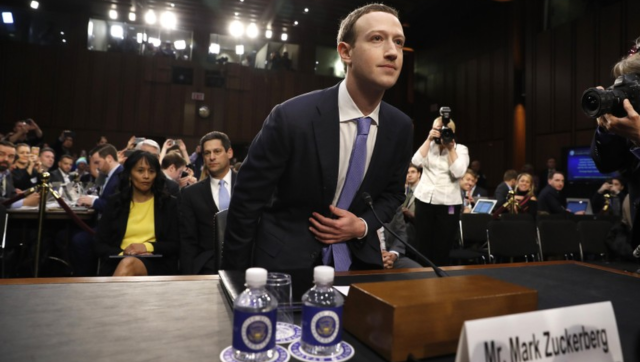In a new sting operation, Cobrapost has revealed how certain IT companies in India are working to manipulate social media campaigns by buying fake FB likes and followers on Twitter, and running negative campaigns against rivals of their clients and also engaging in creating panic among minority groups.
The report states that the most of these companies are working on the behest of BJP and Modi, but also work for Congress sometimes, and in addition manage campaigns for multinational firms, corporations etc as well. You can read the full report here .
In a statement to Firstpost, Facebook said that where fake likes and profiles are concerned, “It’s a violation of our policies to use a fake name or operate under a false identity, and we encourage people to report anyone they think is doing this.
We have a dedicated User Operations team that reviews these reports and takes action as necessary. We also have technical systems in place to flag and block potential fake accounts based on name and anomalous site activity. We are constantly iterating on these systems and developing new ones, to provide an even better experience for the people who use our service."
Nevertheless the sting has raised questions about how social media functions in India.
Mahima Kaul who works with Observer Research Foundation and looks at cyber governance says, “People who have been following the rise of Facebook, Twitter in the West will know that something like this is not a new phenomena. It’s happened there before and now this is happening in India. It is really up to the discerning social media user to figure out what is real and what is not on social media.”
The issue of buying likes or followers has never really been a new one . Previously Rajasthan CM Ashok Gehlot was accused of buying Facebook likes from Istanbul. In foreign countries, research by Carlo De Micheli & Andrea Stroppa revealed how even big brands like Pepsi, Mercedes-Benz and Louis Vuitton resorted to buying Twitter followers.
When it comes to try and pinning a number on the amount of fake FB likes or fake Twitter followers, it’s not such an easy task.
Ishan Russell, the Managing partner for The Image People, a political campaign management firm with special focus on social media, says that “Given the tall claims made by such companies one cannot really assess how much of the online engagement is doctored. But one can see broad trends. For example on Facebook or Twitter one can identify which region is contributing the most likes or followers and if that region doesn’t have anything to do with the client means that there is something fishy.”
He adds that buying fake likes or Twitter followers defeats the purpose of building a social media image as there is never any real engagement. “Having a million followers on a Twitter account which are not genuine means that any message being put out is not actually seen or responded to by a million people,” he says.
Cobrapost also alleges that the IT firms engage in serious defamation and negative campaigns. Where negative campaigns are concerned, Mahima feels that users do tend to figure out who is running what negative campaign. “Take the example of #Feku vs #Pappu. Initially you might have thought that this was some original idea but it’s not and it is pretty evident to all that these are basically two camps fighting an online battle,” she says.
As far as allegations of defamation and illegal activities online are concerned, she adds, “India is equipped to deal with this. We have an IT Act in place and those who are breaking the law will definitely face action once more and more people start to realise the truth behind such malicious campaigns.”
Pranesh Prakash of the Centre for Internet Society, also says, “It seems that in some cases they (the IT firms exposed by Cobrapost) employed botnets. Malicious use of botnets would definitely be illegal under sections 43 and 66 of the IT Act (not s.66A).”
He says while it he could not comment on the veracity of Cobrapost’s claims, “Cobrapost should should have consulted someone who understands technology well before publishing their report.” He points that in the expose it says, “They would use proxy codes on their computers such that their locations change every hour, making detection impossible,” (From the Cobrapost report) which doesn’t make sense. “While *proxies* (*proxy servers*) are used to evade detection, *proxy codes* is not a term I’ve heard before,” he adds.
Where causing communal violence is concerned, VK Mittal, a former scientist at National Technical Research Organisation feels that idea is not so outrageous. “Quite a few incidents of communal violence( Assam, UP) have been reported where the seed was sown by doctored YouTube videos,” he says, “But the government of India has very, very limited resources to contain such contents being spread and take timely/preemptive measures for launching counter offensive measures,”he adds.
“The present set of laws are adequate to deal with this menace but where is the enforcement?” asks Mittal.
The Cobrapost expose also claims that some firms tried to rig elections in some constituencies. Ishan says, “I would not go as far as to say that social media can swing an election, but its importance in dissemination of information is something that perhaps the result of this election will show. Reputations can be harmed by the dissemination of incorrect information. In India Internet penetration is still quite low, so therefore direct impact through social media would not be as much as the chatterati thinks.”
Mahima too is doubtful about whether social media can impact elections in India. “It might impact some of those who are fence-sitters, but on a national scale social media is unlikely to impact elections. The online population is too low right now. It would be good see what happens in Delhi elections given that it is so well connected and that can be best accessed after the results come out,” she says.
The Cobrapost expose makes it sound like everything we see or read online is being managed by some clever, IT puppet masters. But the hope is that in India social media users will also gain in experience.
As Mahima points out, “As more and more users become familiar with social media, they will start seeing a lot of these ‘viral campaigns’ for what they are, engineered. The citizens will also start getting smarter.”
)
)
)
)
)